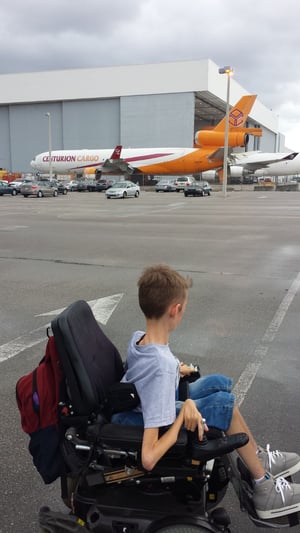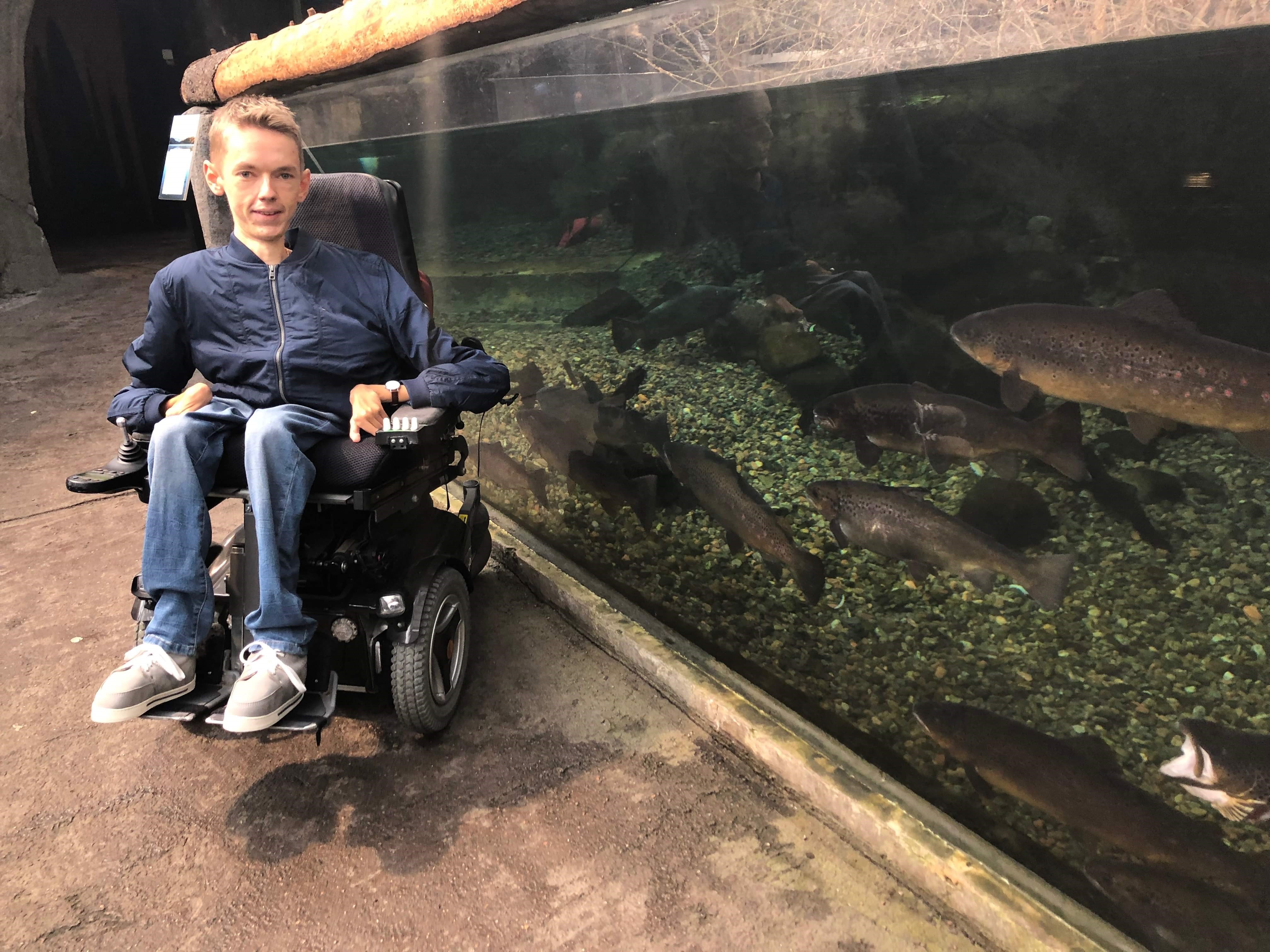“We can probably patch it up with some duct tape”, the baggage handler told me as I stared at the sideways bent armrest, supporting the control box used for operating my power wheelchair. I was stressed, angry and anxious all at the same time, so my immediate answer was “You idiots! What the f***?! I sure hope so!”. Thanks to some impressive engineering by my dad, we managed to make it stay upright. Afterwards, they told us “Sorry, guys, but, you know, these things happen sometimes”. Uhh, ok, thanks?! How am I supposed to enjoy my vacation when the one thing I rely on to function as a human being is barely functioning itself?
My good friend Pernilla Becker, a fellow power wheelchair user and disability advocate, had an interesting flight experience herself. She starred in a Permobil campaign, showing the difficulties of flying with a wheelchair. Ironically, a couple of days after shooting the campaign film, she was denied boarding her flight to Berlin as the airline had made a last-minute aircraft change and suddenly claimed her pre-approved wheelchair was too heavy to go into the cargo space. No other passenger was affected by the aircraft change, whatsoever, except for Pernilla.
But me and Pernilla are only two of many. According to the U.S Department of Transportation, from December 2018 to March 2022, the number of lost, damaged or completely destroyed wheelchairs stood at 20,000. That means 20,000 individuals in the U.S alone were subjected to one of the most anxiety-inducing moments a wheelchair user can experience – having your independence swiftly taken away from you.

A power wheelchair is more than just an equipment. It’s an extension of the body; an exoskeleton filling in the unfair gaps left by my disability; a magical feat of technology that levels the playing field, allowing me to be me. Now imagine this part of me being treated like a piece of garbage – dropped, pushed or violently tipped over, and then handed back with nothing more than a stale apology.
Why are wheelchairs so often mistreated? I believe it’s for two similar, perhaps even related reasons:
- a hierarchical view where society, perhaps unconsciously, looks down on those with disabilities, and
- a lack of understanding, training, or care in the significance of medical equipment to its users' life.
Speaking from personal experience, this has mostly held true when I’ve traveled by airplane. At check-in, my parents are addressed with questions concerning me. At security, I’m treated as an adolescent at the riotous age of 28. And to no fail, I'm always the last person off the plane. When exhausted and in pain from sitting in the same position for hours, it’s humiliating to have to be the last person leaving the aircraft. Then, when the cabin is finally empty, someone shows up to let me know they’re still working on finding me a wheelchair to borrow until I get to the special baggage area to claim my own wheelchair. But once I reach the special baggage area, there’s usually no airport staff available to help check if my power wheelchair has arrived. That process alone can take anywhere from 20 minutes to 2 hours. As you can probably understand, this is not a fun experience whatsoever.

How can we address these issues? Because wheelchair users are just as eager to explore the world as anyone else. Here are my personal suggestions:
- First, the loading and unloading of special medical equipment from aircrafts needs to be made safer by having better resources for these processes. A mechanical lift specifically designed for handling heavy medical equipment such as power wheelchairs should be available at most if not all airports.
- Second, medical equipment should always be considered as high priority cargo by airlines and require it to be delivered to its owner by the gate of the airplane as fast (and safe) as possible. The notion that regular luggage is more important is just plain wrong.
- Third, if more airlines would work together with disability and accessibility advocates and organizations, we’d likely see several positive outcomes for both sides, such as reduced costs for airlines and disabled passengers traveling more frequently. On that note, I applaud the news that both Delta and British Airways have engaged in separate talks with disability and accessibility advocates aimed at improving accessible flying.
What the future holds is uncertain, but I remain optimistic that one day I will feel more encouraged to book that spontaneous last-minute trip to a far away place, and be more concerned about what I packed than if my wheelchair is making the trip in one piece.
 Patrik Wolff
Patrik Wolff
Social Media & Project Manager at Permobil
Patrik is a 28-year-old guy living just outside of Stockholm, Sweden. He works with digital communications, and in his free time he loves to be together with his friends and family, play video games and watch as much American sports as humanly possible. He loves warm weather and has done a fair bit of traveling in the past. His top three travel destinations are: 1) South Florida, USA, 2) Mallorca, Spain, 3) Berlin, Germany – all of which are very accessible for a (F3) power wheelchair user, like Patrik.

